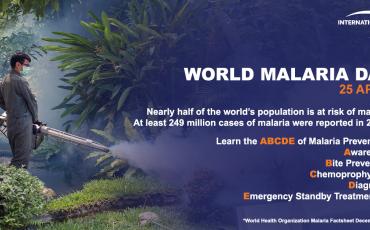
The recognition of mental health as an issue for the workplace was increasing even before COVID-19, and the pandemic together with the current political unrest have fuelled this significantly. This dual crisis has exposed existing issues, both for individuals as well as organisations. Fragile or pre-existing flaws that have been exacerbated by the pandemic have become something no business leader can ignore. The business need to develop sophisticated mental well-being strategies to fulfil duty of care responsibilities and help employees with their mental health resilience is now understood better than ever.
Beyond the obvious positive effects these strategies can have for employees, businesses have a direct interest in creating a mental well-being programmes. According to data from International SOS’ recent Risk Outlook 2021, 1 in 3 risk professionals believe that mental health issues will contribute significantly to declining productivity levels this year. A business that supports employees appropriately will therefore likely be in a better, more productive place than one that does not.
During the pandemic, we have found that many clients have needed immediate, short-term support for employees. A dedicated emotional support helps to provide this in a fast, confidential and expert driven manner. The internal communications around this also helps to support an understanding by employees that their organisation is actively interested in supporting their mental health, and a step towards eradicating stigma.
One of our client’s wanted to make a positive contribution to their people’s health and wellbeing amid the global pandemic. However, a creative way to engage their workforce and promote a healthy lifestyle was proving difficult because of remote working and generally low moral due to the ongoing crisis. With their Human Resources and Occupational Health and Safety team we developed a strategic virtual wellbeing programme to launch globally. Part of the programme consisted of a 'Digital Well-being Portal' where employees could complete lifestyle assessments, take part in fitness challenges, link their fitness devices, socialise with colleagues, and access a learning library. The messaging and topics where specifically designed for the end user. This helped engage employees and boosted their mental and physical wellbeing. It resulted in a 92% satisfaction rate with the efforts during the activities, while 68% of participants perceived an improvement in health post challenge.
Below are some key strategies businesses should look to implement to promote resilience, helping their employees deal with and prevent health issues:
1. Consider mental health and physical health as one
We tend to separate the brain from the body, however if we look at it from both a medical and behavioural aspect, they are intricately linked. How we feel changes how we eat and how we exercise for instance. This goes both ways with certain foods, diets and physical activity levels affecting our moods. Well-being programmes should take both on board, rather than having a single focus on mental health.
2. Know your people
Carry out Mental Health or Resilience Surveys with tools that have scientifically been validated and can uncover individual pain points. This will provide insights into how your workforce is coping overall and enables an understanding into the type of programmes needed to address specific issues.
3. Recognise that everyone is an individual
It is important that businesses enable their people leaders with tools to support the individuals in their teams. It is important that they can recognise potential stress points and red flags amongst employee, and signpost routes and resources available for support. Actively checking in with employees in general conversation on a one-to-one basis, can allow managers to form a greater understanding of how individuals are coping through particularly difficult periods.
4. Make sure people have and are aware of secure routes for reporting their mental health issues
Employees should be provided with a route to confidentially discuss their mental health issues away from their direct managers and teams. This could be with HR or independent expert support activated by the company and should be communicated widely and consistently.
5. Consider the information employees are receiving
People are bombarded in their daily, technology-filled, lives with varying advice and information. Some of the information around the Coronavirus is poor quality and factually inaccurate – feeding feelings of mass hysteria and paranoia. Both a lack of information and poor quality information has been shown to increase irrational thinking. Businesses have a key role and responsibility in providing accurate and timely information, with 76% of employees reporting trust in employer information (Edelman Trust Barometer), above all other sources.
6. Encourage open discourse around mental health
As in many things, communication is key. It is vitally important to let employees know what support is available, that the organisation is open to supporting discourse around mental (ill) health and actively encourages actions that promote mental health. For instance, regular information on ways to deal with stress, managing workloads and keeping a good work/life balance help to let employees know they are supported.
Click here to learn more about Workforce Resilience in a COVID-19 World
https://www.internationalsos.com/medical-and-security-services/workforce-resilience
ENDS



